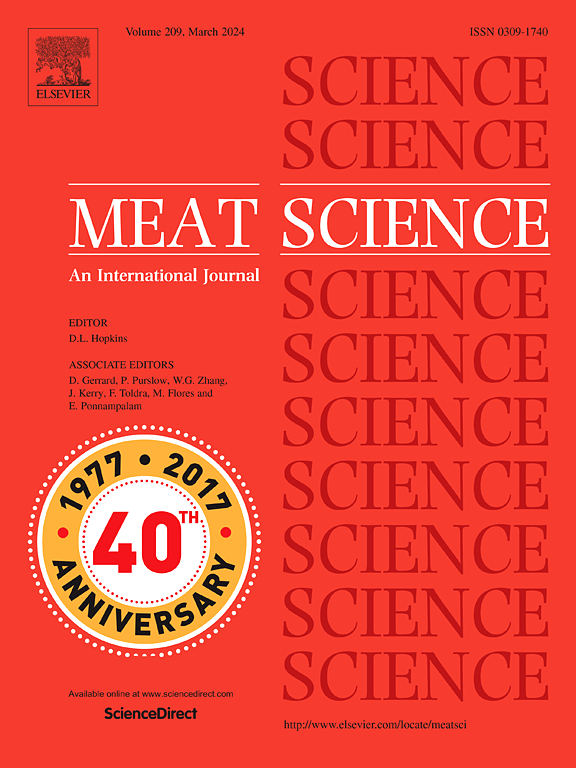Microbial bioprotection: An opportunity to improve safety and quality of meat products in a sustainable way
IF 7.1
1区 农林科学
Q1 Agricultural and Biological Sciences
引用次数: 0
Abstract
In a changing world where sustainability has become a must, the food system has been identified as one of the weakest links where there is a need for innovative solutions to address longstanding and novel challenges related to food safety and quality. The current food system is facing enormous pressure to tackle environmental sustainability issues while guaranteeing safety and diversifying production. In the last years, the possibility to exploit naturally occurring competitive mechanisms, which regulate the homeostasis of microbial ecosystems, has attracted a lot of attention and interest. More specifically, in the food transformation sector, bacteriocins and bacteriocinogenic microorganisms have long been considered an innovation tool attracting the attention of the researchers and industries due to their potential application in the meat sector. This paper presents an analysis of the opportunities and the challenges of the use of bioprotection, also called biopreservation, in the food system as sustainable strategy to be implemented in meat production. Specifically methodologies to identify bacteriocinogenic strains, the effect of processing conditions on the expression of bacteriocin genes and the efficacy of bacteriocin producing strains to inhibit not only target microorganisms but whole spoilage consortia will be discussed.
微生物生物保护:以可持续的方式提高肉制品的安全和质量。
在不断变化的世界中,可持续发展已成为一种必须,食品系统已被确定为最薄弱的环节之一,需要创新的解决方案来应对与食品安全和质量有关的长期和新的挑战。当前的食品系统正面临着巨大的压力,既要解决环境可持续性问题,又要保证安全和生产多样化。在过去的几年里,利用自然产生的竞争机制来调节微生物生态系统的平衡的可能性引起了人们的广泛关注和兴趣。更具体地说,在食品转化领域,细菌素和细菌毒素微生物因其在肉类领域的潜在应用,长期以来一直被视为一种创新工具,吸引着研究人员和业界的关注。本文分析了在食品系统中使用生物保护(也称生物保存)作为肉类生产可持续战略的机遇和挑战。本文将具体讨论鉴定细菌毒素菌株的方法、加工条件对细菌毒素基因表达的影响以及细菌毒素菌株不仅抑制目标微生物而且抑制整个腐败菌群的功效。
本文章由计算机程序翻译,如有差异,请以英文原文为准。
求助全文
约1分钟内获得全文
求助全文
来源期刊

Meat Science
工程技术-食品科技
CiteScore
12.60
自引率
9.90%
发文量
282
审稿时长
60 days
期刊介绍:
The aim of Meat Science is to serve as a suitable platform for the dissemination of interdisciplinary and international knowledge on all factors influencing the properties of meat. While the journal primarily focuses on the flesh of mammals, contributions related to poultry will be considered if they enhance the overall understanding of the relationship between muscle nature and meat quality post mortem. Additionally, papers on large birds (e.g., emus, ostriches) as well as wild-captured mammals and crocodiles will be welcomed.
 求助内容:
求助内容: 应助结果提醒方式:
应助结果提醒方式:


